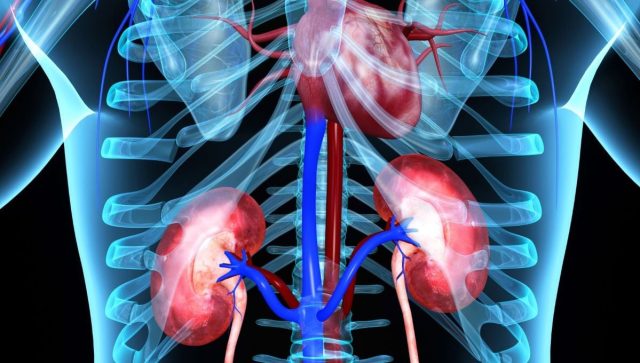Empagliflozin offers cardiorenal benefits for up to 12 months after discontinuation among CKD patients at risk for progression
By Elana Gotkine HealthDay Reporter
MONDAY, Oct. 28, 2024 (HealthDay News) — Empagliflozin continues to offer cardiorenal benefits for up to 12 months after discontinuation among patients with chronic kidney disease at risk for progression, according to a study published online Oct. 25 in the New England Journal of Medicine to coincide with Kidney Week, the annual meeting of the American Society of Nephrology, held from Oct. 23 to 27 in San Diego.
William G. Herrington, M.B.B.S., from the University of Oxford in the United Kingdom, and colleagues randomly assigned 6,609 patients with chronic kidney disease to receive empagliflozin (10 mg once daily) or matching placebo and followed them for a median of two years in an active trial. Surviving patients who consented were observed for an additional two years (4,891 patients enrolled [74 percent]). During the posttrial period, no trial empagliflozin or placebo was administered, but local practitioners could prescribe open-label sodium-glucose cotransporter 2 (SGLT2) inhibitors, including open-label empagliflozin.
The researchers found that the use of open-label SGLT2 inhibitors was similar in the two groups during the posttrial period (43 and 40 percent in the empagliflozin and placebo groups, respectively). A primary outcome event (kidney disease progression or cardiovascular death) occurred in 26.2 and 30.3 percent of patients in the empagliflozin and placebo groups, respectively, during the combined active-trial and posttrial periods (hazard ratio, 0.79). The hazard ratio for a primary outcome event during the posttrial period only was 0.87.
“In a broad range of patients with chronic kidney disease, empagliflozin continued to have additional cardiorenal benefits for up to 12 months after it was discontinued,” the authors write.
Several authors disclosed ties to pharmaceutical companies, including Boehringer Ingelheim and Eli Lilly, which manufacture empagliflozin and funded the study.
Copyright © 2024 HealthDay. All rights reserved.



















